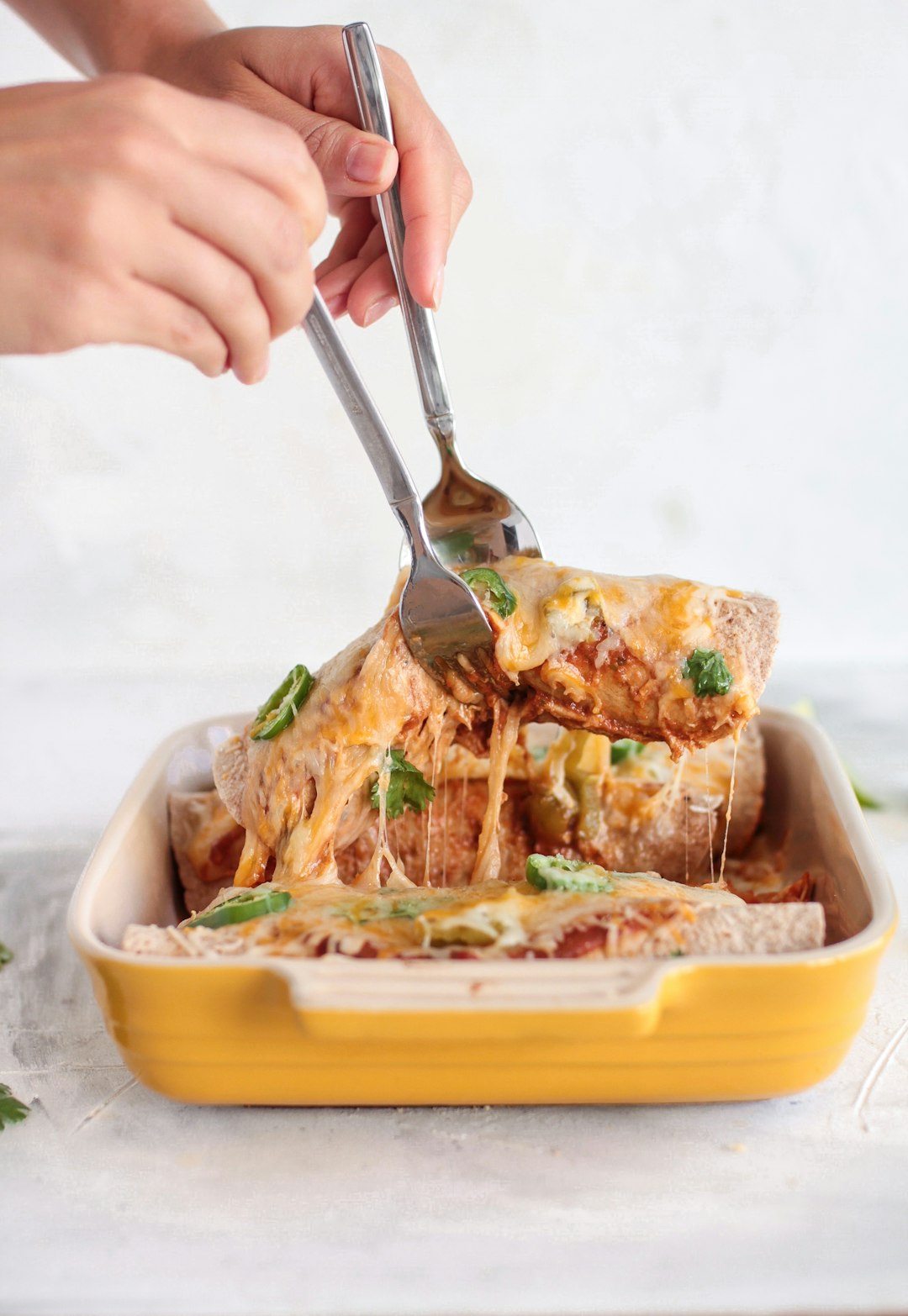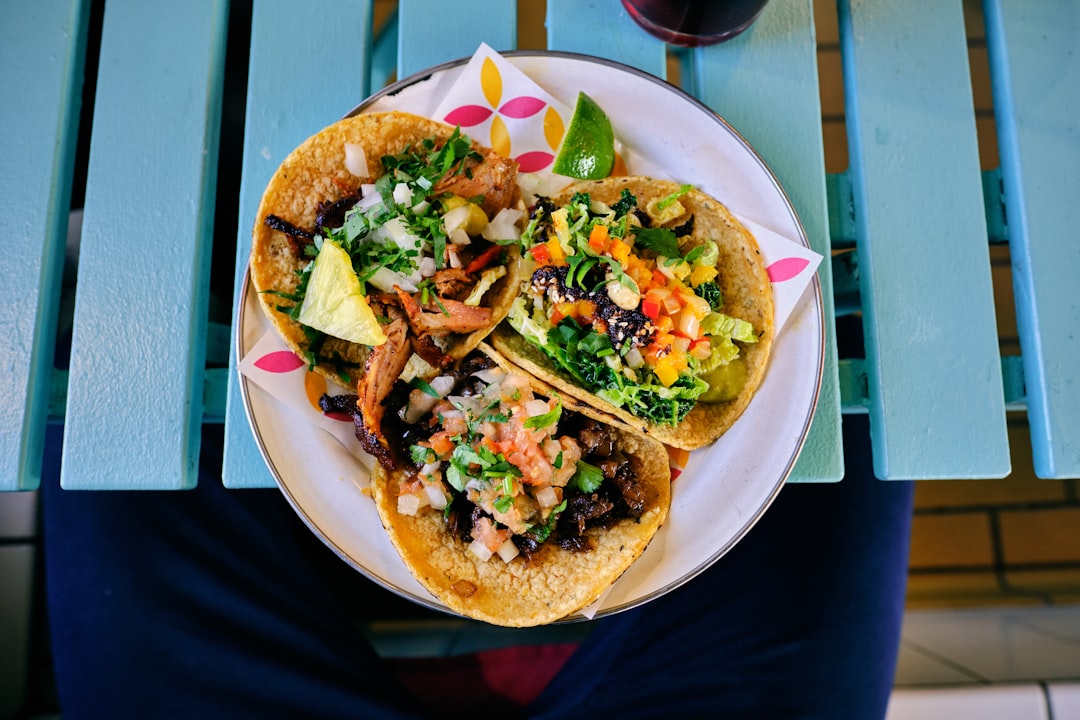Mexican cuisine
Mexican cuisine dishes
A selection of mexican cuisine dishes.
tacos
Tantalizingly wrapped in a warm, supple tortilla, adorned with a mesmerizing mosaic of flavors and textures, tacos emerge as a symphony of culinary enchantment. This humble gem of Mexican origin ignites taste buds and takes them on an audacious escapade through a whirlwind of sensations. From the crisp crunch of fresh vegetables to the succulent tenderness of perfectly seasoned meat, each bite unveils a harmonious convergence of ingredients that dance gracefully on the palate.
tacosMexican cuisine
Mexican cuisine is one of the most diverse and savory cuisines in the world. It is a blend of Mesoamerican and European cooking styles and techniques that make it unique and delicious. From spicy to sweet, Mexican dishes are known for their bold flavors and complex ingredients that create a perfect harmony of texture and taste.
One of the most popular elements of Mexican cuisine is its use of spices and herbs. Cumin, coriander, garlic, and chili are just a few ingredients that create a rich and flavorful base for many of the dishes. When it comes to food pairings, Mexican cuisine is no different. Traditional dishes like Tacos al Pastor or Carne Asada are often paired with mild Guacamole or spicy Salsa to balance the flavors. Desserts like Tres Leches cake or Champurrado, a chocolate-based drink, are perfectly paired with aromatic cinnamon, vanilla, and nutmeg spices.
One of the most iconic dishes in Mexican cuisine is the humble Taco. This versatile dish can be made with different types of meat or vegetarian fillings, and topped with an array of fresh ingredients like onions, cilantro, and avocado. Tacos can be further enhanced by a simple squeeze of lime or a dollop of creamy sour cream, proving to be the perfect meal for any time of day.
Another great dish that is a must-try in Mexican cuisine is Chiles Rellenos. It is a stuffed chili pepper dish, usually Poblano peppers, filled with minced meat, cheese, or beans. The stuffed peppers are coated in a light egg batter and fried until golden brown. They are served with a spicy tomato sauce that perfectly balances the richness of the dish.
However, Mexican culinary delights are not limited to just these dishes. There are many other classic dishes out there like Quesadillas, Enchiladas, and Fajitas that are perfect for choosing from. They all make use of similar ingredients that produce different textures and flavors, resulting in an expansive range of palate tantalizing options.
Overall, Mexican cuisine is vibrant and diverse, with its sweet and savory notes that create an explosion of flavor in every bite. The unique blend of spices, herbs, and fresh ingredients make it a popular cuisine, both as street food or fine dining. So if you’re looking for a cuisine that is both delicious and diverse, look no further than Mexican cuisine that is sure to leave a lasting impression on your taste buds.
History of mexican cuisine
Mexican cuisine has a rich and diverse history that spans centuries of indigenous and colonial influences. From the ancient Mayans to the Aztecs, and the arrival of the Spanish Conquistadors, Mexican food has evolved and adapted to reflect the many cultural and culinary traditions that have shaped it.
The foundation of Mexican cuisine is based on the use of staple ingredients such as maize, beans, and chili peppers, which have been cultivated in the region for thousands of years. These ingredients are still used extensively today, providing the foundation for many classic dishes like tacos, tamales, and enchiladas.
In addition to these staples, indigenous Mexican cuisine also incorporated a wide variety of local ingredients like avocados, cactus, and tomatoes. These flavors were enriched and transformed by the arrival of Spanish cuisine and the introduction of ingredients like wheat, dairy, and meats like pork and beef.
Over time, Mexican cuisine has continued to evolve, influenced by the many waves of migration and cultural exchange that have taken place throughout the region. As a result, today's Mexican cuisine is an eclectic blend of indigenous, Spanish, and global flavors, reflecting the many different traditions that have shaped it.
However, despite the many changes that have taken place, Mexican cuisine remains deeply rooted in its indigenous heritage, with a strong emphasis on fresh, flavorful ingredients and bold spices. From the fiery heat of the habanero chili to the subtle sweetness of roasted corn, Mexican cuisine has a depth and complexity that is unmatched by any other culinary tradition.
In conclusion, Mexican cuisine is a testament to the rich and diverse history of this ancient land, reflecting the many cultural and culinary traditions that have shaped it over the centuries. Whether you're savoring a hot bowl of pozole or enjoying a crispy churro for dessert, Mexican food is a true culinary delight that is sure to please the senses and delight the palate.


